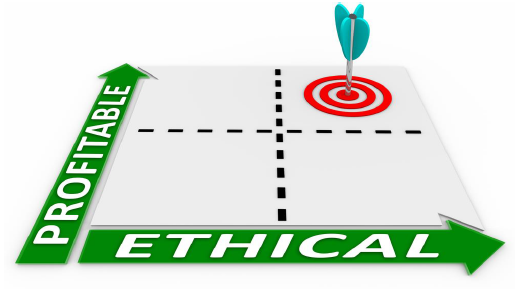It is not the most effective organisations that will survive, nor the ones with a better strategy, or the most advanced technology, but the most ethical.
After over 20 years of working in management education – and leadership development in particular – it dawned on me that our leadership crisis is due to overestimating the importance of competencies and technology, and discounting the critical importance of relational and ethical leadership.
Imagine what the world would be like if we were as excited about developing ethical leadership as we are about developing technology?
In recent times, just about everyone refers to the context of volatility, uncertainty, complexity, and ambiguity (VUCA) – the acronym popularised by Nathan & Lemoine in their 2014 HBR article (although originally introduced by the U.S. Army). I believe that far more concerning is the global leadership crisis spawned by fraud, untrustworthiness, corruption, and artifice (FUCA) which is much more negatively impactful and challenging to address.
As a result, ethical leadership is now the new source of differentiation and competitive advantage.
Ethical leadership is leadership driven by respect for ethical beliefs and values and for the dignity and rights of others. It is based on integrity, fairness, trust, consideration, and the sharing of power. Ethical leaders represent the best interest for their stakeholders (employees, peers, associates, and customers) by exercising ethical judgement. Like integrity and honesty (the essential requirements for exercising effective leadership), ethical behaviour is a precious commodity that cannot be expected from cheap leaders but only from worthy ones!
Myths Surrounding Business Ethics and Ethical Leadership
Ethics and ethical leadership are two of the most misunderstood topics in management and business in general. Some of the myths surrounding ethics include: it’s easy to be ethical; unethical behaviour is only the result of “bad apples”; ethics can be managed through formal codes of ethics and educational programs; ethics is the realm of theologians, philosophers, academics; and ethical leadership is mostly related to leader integrity. (For a comprehensive review visit Managing to be ethical: Debunking five business ethics myths – Academy of Management Executive) Often, the word ‘ethics’ evokes seriousness, boredom, and/or incompatibility with organisational effectiveness, and the achievement of business goals. There is nothing further from the truth.
Ethics => ‘The Good Life’ and Happiness
Ethics – derived from the Greek word “ethos” (custom or habit) – like morality relates to defining the ‘right conduct’, and pursuing a good life worth living. That is, a happy and satisfying life. What humans want is not just happiness. They want justice; they want meaning. –Martin Seligman True well-being, joy, and contentment (happiness) derive from the application of virtues – traits or quality deemed to be morally good (e.g. gratitude, courage, humility, kindness, and justice). Clearly, this understanding of ‘happiness’ differs significantly from popular views that seek happiness through the exertion of power, attainment of status and/or accumulation of material wealth, which are driven by the need to fill an existential vacuum (meaninglessness and purposefulness), and in reality only bring a temporary sense of satisfaction. Virtues, then, relate to people and the lives they lead.
From this perspective, leadership is about how to be, not how to do. Leaders who lead through virtue inspire people to follow them.
Character
The practice of virtues builds the ‘character’ – the unique combination of mental characteristics and behavior that distinguishes a person or group. “Character is revealed in the moral and ethical choices we make. To act with character is to show virtue, and virtues are central to character” (Sarros, et al., 2006, p. 13).
Hence, character enables us to identify leaders who make a difference in their organisation. This is how leaders build their ‘reputation’ – either good or bad. Leaders without integrity not only erode their personal reputation; they also put their organisations at risk and in a position of strategic disadvantage. Character is like a tree and reputation like a shadow.
The shadow is what we think of it; the tree is the real thing.
– Abraham Lincoln
* * * *
For a complete review on ‘Character Strengths and Virtues’, or to take a free survey to discover your character strengths in 15 minutes visit: The VIA Institute on Character.
Ethical Behaviour and Applied Ethics
Ethical behaviour refers to actions judged by, and consistent with, one’s personal values and the commonly held values of the group, organisation or society one belongs to. It requires taking personal responsibility for the consequences of your ethical or unethical behaviour. Applied ethics relates to the treatment of moral problems, practices, and policies in either our personal or professional life. Ethical codes (e.g. corporate/business or professional codes of practice) assist in understanding the difference between ‘right’ and ‘wrong’, and in understanding and applying decisions.
Leaders as Role Models of Values and Ethical Behaviour
Ethics should not be left to chance. Ethical leaders establish the social context within which positive self-regulation of ethical behaviour is a clear and compelling organisational norm, so people act ethically as a matter of routine. A leader’s reputation depends on this. Leaders are role model for professionalism and ethics by demonstrating exemplary, unwavering ethical leadership. Their choices determine three types of leadership: (1) Ethical leadership. (2) Hypocritical leadership – displayed by those who talk the talk, but don’t walk the walk. (3) Ethically neutral leadership. This is the case when leaders have not made the modelling of values and ethics an explicit part of the leadership agenda. Hence, employees don’t know where they stand.
Executives have great power to shift the ethics mindsets of organisational members in positive or negative ways. This leading by example should model positive values, psychological states, behaviours and self-development. Similarly, organisations can benefit by having leaders with sound business ethics that consumers expect. The strategic leadership of ethical behaviour in organisations can no longer be ignored.
The Dividends of Ethical Leadership: High Levels of Employee Engagement and Extraordinary Performance
Developing, cultivating and practising ethical leadership pays the following benefits and dividends to individuals and organisations:
- Models employee ethical conduct;
- Prevents bad reputation and litigation;
- Inspires others and builds character;
- Engenders trust, psychological safety, and fairness;
- Increases employee commitment and discretionary effort (engagement), which in turn translates into creative thinking, innovation, high performance, and results.
Conclusion
In a context of global leadership crisis, and increasing fraud, untrustworthiness, corruption, and artifice (FUCA), ethical leadership has become a strategic priority and competitive advantage for organisations. Ethics, morality, the practice of virtues, and building character are the key to ‘The Good Life’, authentic happiness, leader reputation, and high levels of employee engagement, extraordinary performance, and business results.
© 2016 Sebastian Salicru
==========================================================
Sebastian Salicru (Business Psychologist) | Leadership Development Expert, Executive Coach, Facilitator, Trainer, Researcher and Author | sss@pts.net.au | www.pts.net.au



